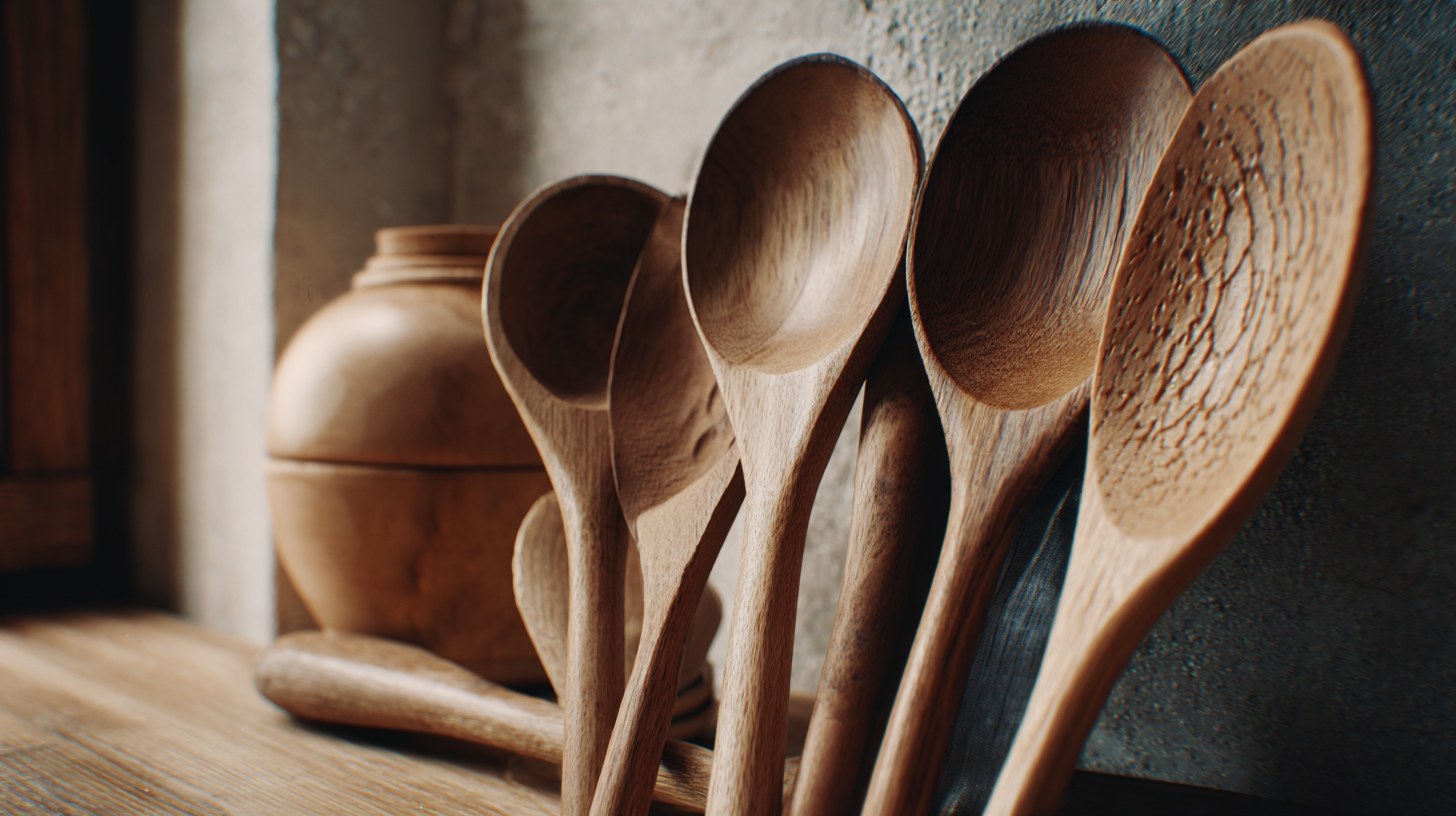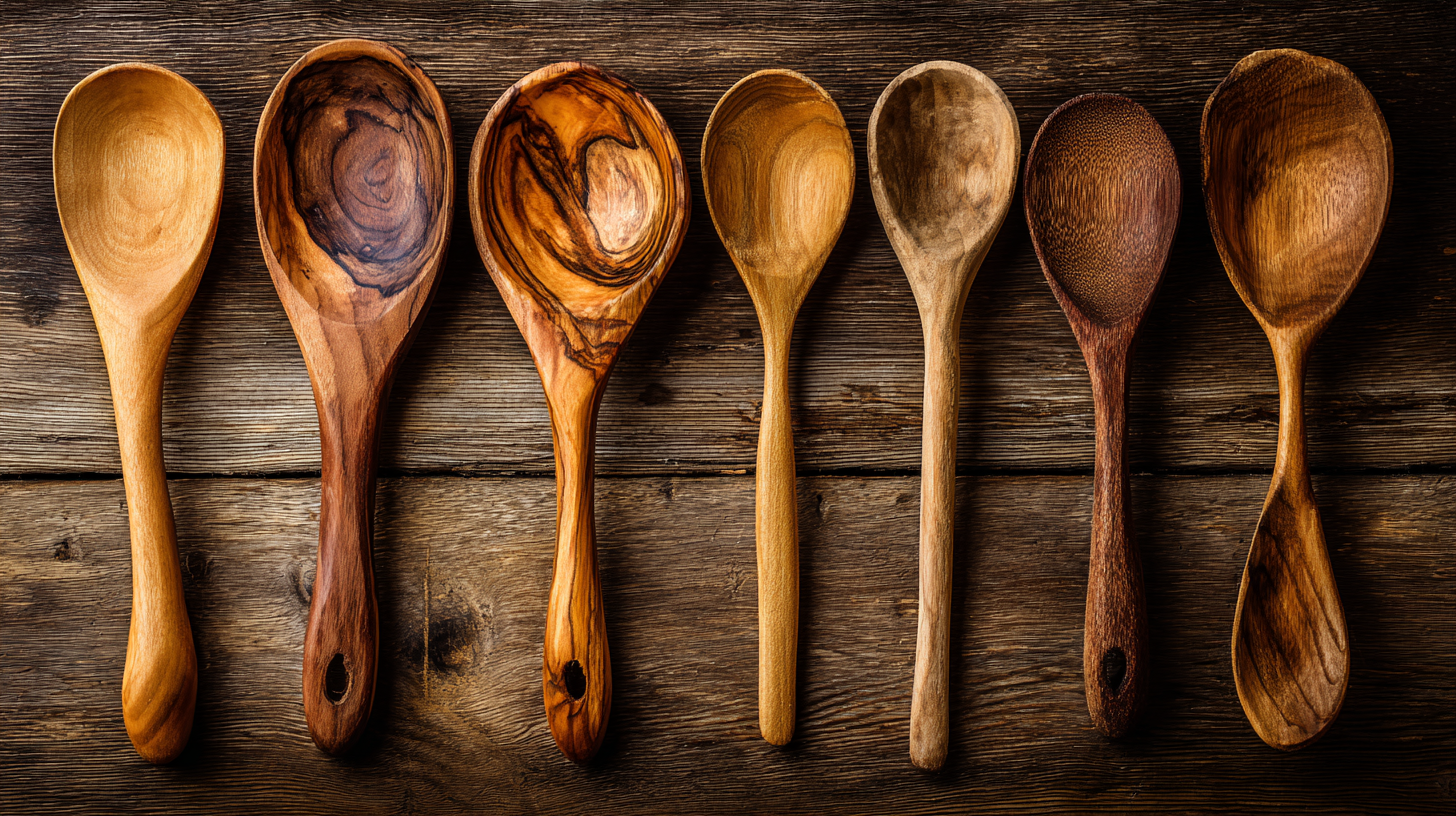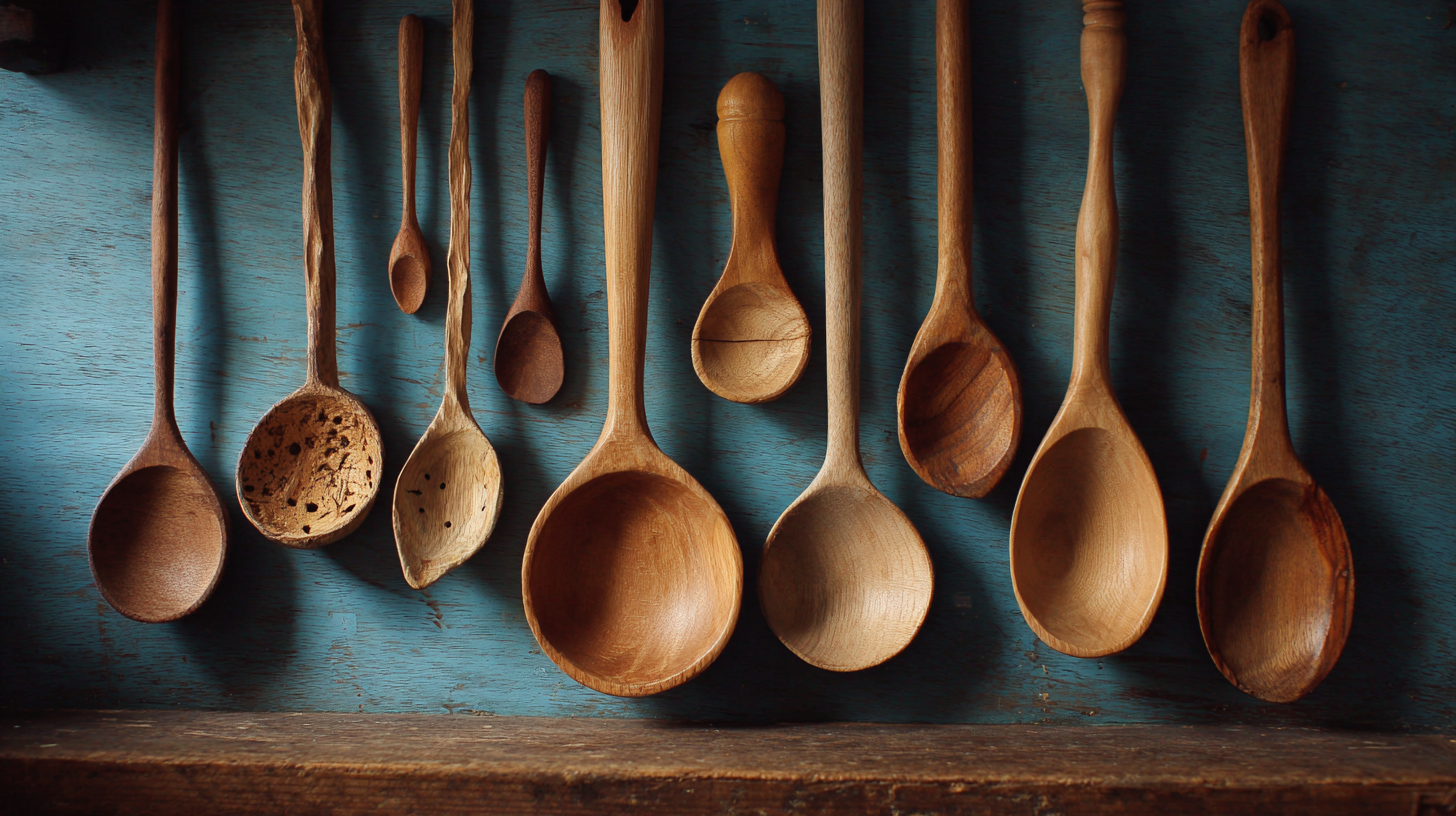In recent years, the culinary world has witnessed a significant shift towards sustainable cooking practices, with consumers increasingly seeking eco-friendly kitchen tools. Among these,
 The Wooden Spoons have emerged as a top choice for both home cooks and professional chefs due to their inherent sustainability and durability.
According to a recent report by the Sustainable Agriculture Research and Education (SARE), wooden utensils, particularly those made from sustainably sourced wood, have a minimal environmental impact compared to their plastic counterparts, which contribute significantly to plastic pollution.
Furthermore, a study by the World Health Organization highlights that using natural materials like wood can reduce the risk of chemical contamination in food preparation.
As more individuals strive to align their cooking habits with their environmental values, understanding how to select quality manufacturers of The Wooden Spoons becomes crucial for ensuring longevity and sustainability in their culinary endeavors.
The Wooden Spoons have emerged as a top choice for both home cooks and professional chefs due to their inherent sustainability and durability.
According to a recent report by the Sustainable Agriculture Research and Education (SARE), wooden utensils, particularly those made from sustainably sourced wood, have a minimal environmental impact compared to their plastic counterparts, which contribute significantly to plastic pollution.
Furthermore, a study by the World Health Organization highlights that using natural materials like wood can reduce the risk of chemical contamination in food preparation.
As more individuals strive to align their cooking habits with their environmental values, understanding how to select quality manufacturers of The Wooden Spoons becomes crucial for ensuring longevity and sustainability in their culinary endeavors.
The increasing awareness of sustainability has led many home cooks to reconsider their kitchen tools. Wooden spoons stand out as a compelling choice when evaluating environmental impacts. According to a 2021 report from the Environmental Protection Agency, plastic utensils contribute significantly to landfill waste, with an estimated 40% of plastic foodware ending up in disposal sites. In stark contrast, wooden utensils can be sourced sustainably from forests managed under strict guidelines, supporting biodiversity while offering a compostable alternative at the end of their life cycle.
Moreover, research published in the Journal of Cleaner Production highlights that producing plastic utensils involves high fossil fuel consumption and presents a substantial carbon footprint. In contrast, wooden spoons, especially those made from bamboo, require far less energy to produce and can sequester carbon throughout their growth. This underscores the long-term benefits of wooden utensils—not only do they have a smaller ecological footprint, but they also encourage a shift towards earth-friendly practices in our daily cooking routines.
 Wooden spoons have become increasingly popular among home chefs who prioritize
sustainability in their cooking methods. One of the primary reasons for
this preference is the eco-friendly nature of wood as a material.
Unlike plastic or metal utensils, wooden spoons are biodegradable, reducing their impact on landfills. This natural material is often sourced from
sustainably managed forests, adding to their appeal for environmentally conscious consumers.
Wooden spoons have become increasingly popular among home chefs who prioritize
sustainability in their cooking methods. One of the primary reasons for
this preference is the eco-friendly nature of wood as a material.
Unlike plastic or metal utensils, wooden spoons are biodegradable, reducing their impact on landfills. This natural material is often sourced from
sustainably managed forests, adding to their appeal for environmentally conscious consumers.
Moreover, wooden spoons are gentle on cookware, preventing scratches and damage to non-stick surfaces. This quality prolongs the life of kitchen equipment,
making them a practical choice for sustainable cooking. Additionally, wooden spoons do not retain heat, allowing chefs to stir
hot dishes without the risk of burns. Their durability means that they can last for years, minimizing the need for frequent replacements and further supporting
a sustainable kitchen ethos. With their combination of functionality and environmental benefits, it's no wonder that home chefs increasingly prefer
wooden spoons for their culinary adventures.
As we move closer to 2025, the kitchen industry is witnessing a significant shift towards eco-friendly tools, reflecting a broader trend of sustainability in consumer choices. According to a recent report by Allied Market Research, the global market for sustainable kitchenware is expected to grow at a CAGR of 7.3% from 2022 to 2028. This surge in demand is driven by growing awareness of environmental issues, as consumers increasingly seek products that minimize their ecological footprint.
Wooden spoons, often regarded as the gold standard for sustainable cooking, exemplify this trend. Made from renewable resources, these utensils are not only biodegradable but also free from harmful chemicals commonly found in plastic counterparts. The National Kitchen & Bath Association indicates that the adoption of wooden kitchen tools has surged by 25% over the past year alone, reflecting a shift towards materials that promote sustainability. With their durability and timeless appeal, wooden spoons are emerging as essential kitchen items for those looking to balance functionality with environmental responsibility in their culinary practices.

When it comes to sustainable cooking, wooden spoons stand out not just for their environmental benefits but also for their remarkable lifespan and durability. Unlike plastic or metal utensils that can warp or degrade over time, wooden spoons are crafted from solid, natural materials that can withstand years of daily use. A well-made wooden spoon can easily last a lifetime if properly cared for, making it a smart investment for any kitchen.
The key to the longevity of wooden spoons lies in their inherent properties. Wood is less prone to scratching and does not retain odors or flavors from previous meals, ensuring that your culinary creations remain pure and untainted. Additionally, wooden spoons can be sanded down to remove any wear or damage, allowing them to be restored to their original condition. This ability to rejuvenate rather than replace also contributes to their sustainable appeal, as it reduces waste and encourages a more mindful approach to kitchen tools. By choosing wooden spoons, not only do you promote sustainability, but you also invest in a tool that can effortlessly accompany you through countless cooking adventures.
The choice of cooking utensils can significantly impact both health and the environment. Wooden spoons stand out as a superior option when compared to metal or plastic tools. One of the primary health benefits of using wooden utensils is their non-reactive nature. Unlike metal, which can react with acidic foods, wooden spoons ensure that the natural flavors of dishes remain unaltered. This not only preserves the taste of your meals but also protects you from potential harmful chemicals that can leach from certain metals when heated.
Moreover, wooden spoons are less likely to harbor bacteria compared to plastic options. Studies have shown that plastic utensils can develop small cracks over time, providing a breeding ground for microbes. In contrast, wood has natural antibacterial properties, making it a safer choice for food preparation. Additionally, wooden spoons are gentle on cookware, preventing scratches and prolonging the life of your pots and pans. This combination of health benefits and durability emphasizes why wooden spoons are the optimal choice for sustainable cooking, allowing home chefs to enjoy their culinary creations while prioritizing their well-being.
This chart illustrates the key health benefits of using wooden spoons in cooking. The data reflects the effectiveness of wooden spoons in terms of their natural antibacterial properties, non-toxic nature, durability, non-scratch surface for cookware, and heat resistance, showcasing why they are a sustainable choice for health-conscious cooking.
